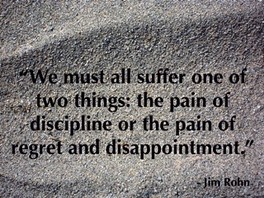"Vision? Who has time for vision? I'm busy running a business!"
When you or someone in your business begins the process of planning for the future of their family business, it is important to thoughtfully consider the goals for the plan and the business as a whole.
Well hold on cowboy! This approach usually leads to an incomplete plan, or a plan that fails to recognize the needs and desires of ALL key members of the business. A more formalized process of setting and prioritizing goals for the farm succession plan can help ensure that the resulting plan best fits the unique needs of the business-owning family.
|
Vision, Mission and Goals are a big part of the ongoing succession planning process. They provide direction in developing a plan. The process of establishing both family and business vision, mission and setting goals can help owners, managers and family members understand their priorities better. A well-developed set of vision, mission and goals becomes the basis for many decisions that are made in a business or farm succession plan.
|
Reduce your plan to writing. The moment you complete this, you will have definitely given concrete form to the intangible desire. |
- It’s hard work,
- Requires you to dedicate a solid 2-3 hours to the process,
- Is possibly something you may have never done before and,
- Is usually worth the effort.


 RSS Feed
RSS Feed
